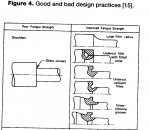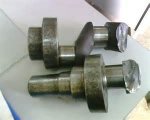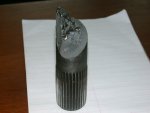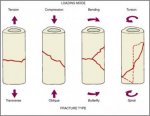Ricardo made about 20 sets for Stillens and Stillens was the only vendor that sold them. I don't understand why the pinion shaft would be any more likely to fail with a different ratio given the shafts dimensions and materials should be the same as OEM. The stresses on the gears themselves are different but the loading on the shaft is more dependent on the engine's torque, not HP, or the final ratio. e.g the stresses on the pinion shaft will be less on an engine puts out 2000 hp at 20,000 rpm than with a engine that puts out only 500HP at 3000 RPM. That said, Ed's engine put out a lot more torque than stock, I think somewhere between 750 and 800, and he drives his car quite a bit. Many others have even more torque, but I doubt that any of them drive their cars as much as Ed.
IMO, either the Ricardo transaxles are not as stout as we think and the only reasons for the lack of more failures are that the heavily modified cars are not driven much, or Ed just happened to get a bum pinion gear that had a defects in it. I think it was the later. At least I hope that was the case or mine gears will also fail sometime in the future.
I remember looking at my pinion's shaft and there is an undercut right need the failure point. I'm not an ME, isn't it better to have a fillet rather than an undercut where the shaft must change diameters? Couldn't an undercut initiate a stress riser?





